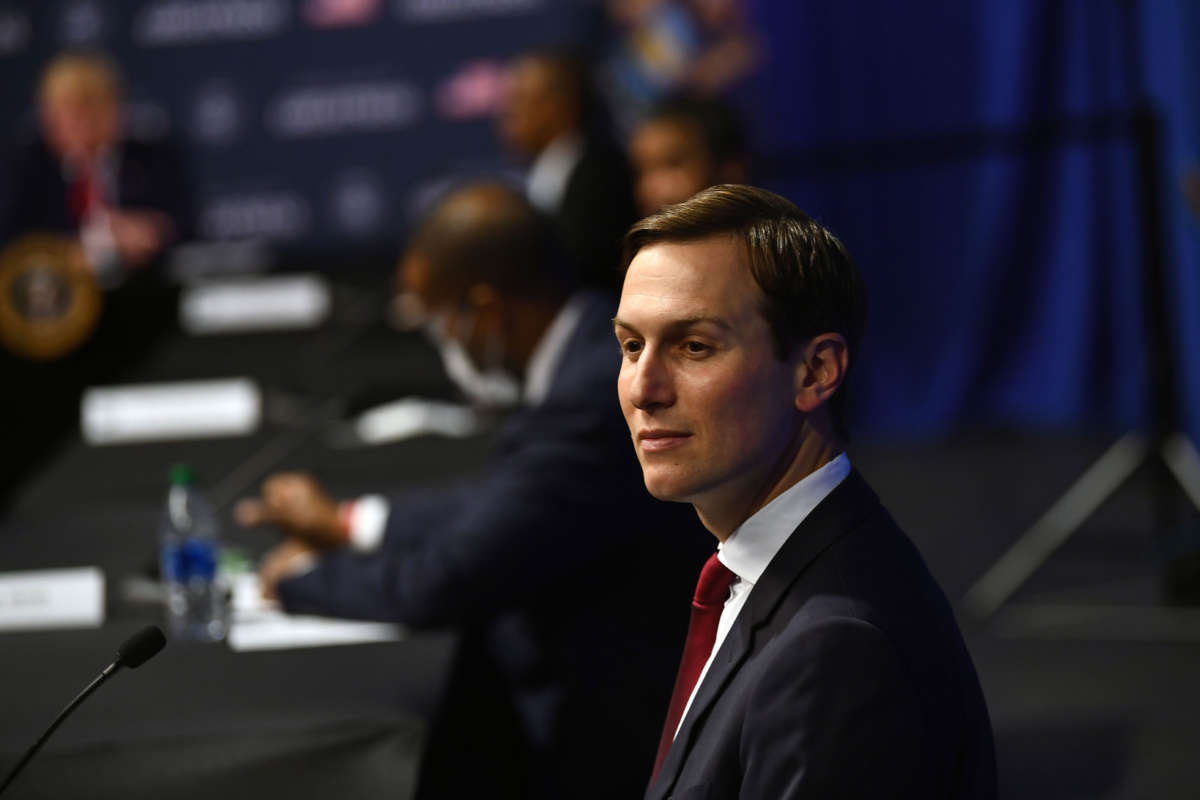The White House released figures this week detailing which businesses received funds from the Paycheck Protection Program (PPP), revealing a number of controversial payments made to lobbyists, political organizations, and Trump-linked businesses.
Created in late March as part of the CARES Act to help address the economic impact of COVID-19, PPP has been criticized for its controversial management. Though the program was intended to help small businesses keep workers on their payroll, the wording of the law allowed for exceptions to be made for larger companies, under certain circumstances, as well. The program also took flak for failing to distribute funds to a number of minority-owned businesses that were in dire need of aid.
PPP was meant to allow businesses with fewer than 500 employees to receive loans from the federal government, some of which can be forgiven if the money is used for paying workers’ salaries or spent on rent, mortgage interest payments, or utility bills for businesses.
After pressure from critics and watchdog groups mounted for the administration to release details on who exactly received funds, the White House relented on Monday and published the names of some corporations that got the biggest payouts. It did not release information for loans worth less than $150,000, which the administration said accounted for 86.5 percent of all funds given out.
Still, the data that were released revealed a number of controversial and possibly problematic loans given out by the administration, which will likely result in critics questioning whether a conflict of interest exists in some of the PPP funds given out.
The family of President Donald Trump’s son-in-law Jared Kushner will benefit from PPP, for example, according to reporting from ProPublica. A news website called The New York Observer, once owned by Kushner and now managed by an investment firm run by his brother-in-law, received a loan somewhere in the range of $350,000 to $1 million. Princeton Forrestal LLC, a company that is at least 40 percent owned by the Kushner family, also received a loan in the range of $1 million to $2 million.
Trump’s children also appear to benefit somewhat from the PPP loans. An indoor lettuce farming venture, which received an investment from Donald Trump Jr., also received a loan between $150,000 and $350,000 from PPP. Notably, the co-chair of that company is also a Trump campaign fundraiser.
Some with political connections to Trump also received money from the program. Albert Hazzouri, a Pennsylvania dental practice owner, received a loan from PPP in the $150,000 to $350,000 range. Hazzouri frequently golfs with Trump at the president’s Mar-a-Lago estate in Florida, and infamously handed Trump a policy proposal in 2017 while the two were on the links. The proposal, supported by the American Dental Association, described the commander-in-chief as “king.”
The law firm of Kasowitz Benson Torres LLP received a PPP loan of between $5 million to $10 million, according to the figures released on Monday ($10 million is the maximum any company could have received from the program). The firm represented Trump for decades before he became president, and one of its managing partners, Marc Kasowitz, was formerly Trump’s lawyer in the special counsel Russia investigation.
Treasury Secretary Elaine Chao, who is married to Senate Majority Leader Mitch McConnell, may have benefited from PPP as well. A New York-based shipping business owned by Chao’s family received a loan worth at least $350,000.
Lobbying firms cashed in on the program, too. Wiley Rein, a lobby group that focuses on trade policy, received a loan between $5 million and $10 million. Two energy industry firms, Van Ness Feldman and Beveridge & Diamond, each received loans between $2 million and $5 million.
A political consulting firm founded by Jim Messina, who was a campaign manager to former President Barack Obama, got a loan that was greater than $1 million, and a company that creates political advertisements for the Trump campaign got between $350,000 to $1 million.
Notably, several organizations that are typically critical of government spending cast aside their political ethos in favor of getting loans from the PPP. Americans for Tax Reform, for instance, took in a loan in an amount between $150,000 and $300,000. The organization touts itself as one that “educates taxpayers on the true cost of government” and “the realities of costly government programs.”
The Ayn Rand Institute, named for the conservative philosopher who decried government aid programs, received a loan that may be as high as $1 million. The organization justified going against its principles in a statement, saying, “It would be a terrible injustice for pro-capitalists to step aside and leave the funds to those indifferent or actively hostile to capitalism.”
We have 9 days to raise $50,000 — we’re counting on your support!
For those who care about justice, liberation and even the very survival of our species, we must remember our power to take action.
We won’t pretend it’s the only thing you can or should do, but one small step is to pitch in to support Truthout — as one of the last remaining truly independent, nonprofit, reader-funded news platforms, your gift will help keep the facts flowing freely.
